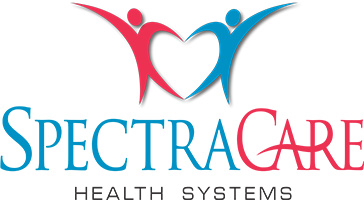
SpectraCare DD Services
According to the DSM 5, intellectual disability involves impairments of general mental abilities that impact adaptive functioning in three domains, or areas. These domains determine how well an individual copes with everyday tasks: • The conceptual domain (skills in language, reading, writing, math, reasoning, knowledge, and memory). • The social domain (empathy, social judgment, interpersonal communication skills, the ability to make and retain friendships, and similar capacities). • The practical domain (self-management in areas such as personal care, job responsibilities, money management, recreation, and organizing school and work tasks). An individual’s symptoms must begin during the developmental period and are diagnosed based on the severity of deficits in adaptive functioning. The disorder is considered chronic and often co-occurs with other mental conditions like depression, attention-deficit/hyperactivity disorder, and autism spectrum disorder.
Intellectual disability (intellectual developmental disorder) as a DSM-5 diagnostic term replaces “mental retardation” used in previous editions of the manuals. “Intellectual developmental disorder” reflects deficits in cognitive capacity beginning in the developmental period. Together, these revisions bring DSM into alignment with terminology used by other professional disciplines and organizations.
SpectraCare provides Developmental Disability services (previously known as Mental Retardation services, in the counties of Barbour, Geneva, and Henry. The services provided include Day Habilitation Services, Residential Habilitation, and Case management services.
The day habilitation programs provide services Monday-Friday for individuals five hours per day including lunch and transportation to and from their homes. While at the day programs, individuals are involved in training activities that increase their independent living, mobility, receptive and expressive language, self-care skills, and self-direction skills. These activities range from learning how to get dressed or wash their hands to learning how to cook a meal or clean their homes. Job training skills are also provided as needed along with reading and computer training. Community integration opportunities are also provided which stimulate social learning as well.
The residential habilitation provides 24 hour care to the residents in these homes. The residents have learning opportunities at home which teach independent living and social skills. The individuals participate in activities at their homes such as learning how to make their beds or wash their clothes. They get to choose what they would like to eat or if they would like to go out to eat. Families and friends are welcome to visit or take the residents home for visits. These residents attend their day habilitation programs during the week and are given the opportunity to participate in the religious services of their choice on the weekends if they would like to attend or they are given the option not to participate as well.
Case management services are provided to all individuals receiving day habilitation and/or residential services. The case managers monitor the individuals and link them with other needed services such as vocational training, in home support services, medical services, etc. The case managers also assist individuals in the county who are seeking DD services and who are currently on the state waiting list.
In order to obtain these services, one must be eligible according to the Alabama Department of Mental Health’s standards, which consists of the following: A person age 18 or above who has been diagnosed with a developmental disability before the age of 18, Must have an IQ score below 70, and Must have Medicaid and meet the criteria for the Medicaid Waiver program.

